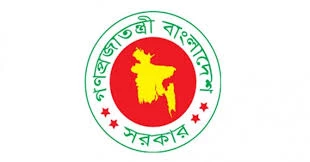The Task Force on Re-strategising the Economy has put forward a series of recommendations aimed at fostering economic transformation in Bangladesh.
The proposals include launching pilot projects to develop scalable models for broader reforms, signaling the government’s commitment to urgent economic changes.
The task force’s report, titled “Re-strategising the Economy and Mobilizing Resources for Equitable and Sustainable Development,” provides a strategic framework to guide Bangladesh’s interim government in addressing economic challenges while promoting growth, social progress, and environmental sustainability.
Highlighting inefficiencies in public services and environmental concerns, the task force underscored the need for targeted interventions to drive lasting change.
At a press briefing at the NEC Conference Room in Sher-e-Bangla Nagar, Task Force Chief Dr. KAS Murshid outlined the key recommendations.
The event was attended by Planning Adviser Dr. Wahiduddin Mahmud and other members of the 12-member task force.
The report presents well-researched initiatives selected for their feasibility and public impact. By collaborating with citizens and youth groups, these measures aim to enhance transparency, accountability, and inclusivity.
Dr. Murshid highlighted key proposals, including:
• Public sector reforms: Improving efficiency in public hospitals, rural schools, clinics, and the Bangladesh Road Transport Authority (BRTA).
• Urban development: Revitalizing the Buriganga River and reforming a key ministry.
• Institutional changes: Establishing a Centre of Global Excellence, reassessing Bangladesh Biman, creating the Centre for Social and Behavioural Change Communication and Research (CSBCC&R), setting up a Regulatory Reform Commission (RRC), and forming an NBR Oversight Committee.
• Transport reforms: Implementing automatic traffic signaling and transitioning to a single-operator bus franchise system.
• Investment and trade facilitation: Enhancing the One Stop Service (OSS), attracting FDI in healthcare and vocational education, strengthening economic diplomacy, expanding skilled labor exports, and revitalizing Special Economic Zones (SEZs).
Task force conducts operation against illegal sand extraction in Feni river
Dr. Wahiduddin Mahmud emphasized the importance of restructuring Bangladesh Biman to transform it into a competitive airline. He commended the task force for compiling the report within a short period, ensuring a pragmatic and actionable approach.
Dr. Monzur Hossain, Research Director at BIDS and a task force member, noted the report’s focus on strengthening macroeconomic stability and adopting an accommodative monetary policy.
Former MCCI President Syed Nasim Manzur, participating online, stressed the need for a new Arbitration Act and Bankruptcy Act, along with merging Dhaka’s two municipal authorities.
Dhaka University Professor Dr. Selim Raihan suggested prioritizing the operationalization of a few SEZs rather than rolling out 100 at once. He also recommended improving OSS at BIDA and empowering the Bangladesh Energy Regulatory Commission (BERC).
Economist Dr. Fahmida Khatun called for stricter internal auditing and compliance mechanisms in the banking sector.
BUET Professor Dr. Shamsul Haque stressed the need for greater accountability in feasibility studies for infrastructure projects.
Industrial Security Task Force ensuring stability, safety in key industrial hubs: ISPR
Cross-Cutting Reforms for Economic Transformation
The task force proposed several overarching reforms, including:
• Leveraging digital and AI technology across sectors
• Reducing the digital divide
• Reforming the planning process
• Professionalizing leadership positions
• Combating extortion
• Enhancing government efficiency
• Implementing NID-based open data platforms
• Establishing emergency reserves
• Depoliticizing the banking sector
Additional recommendations include utilizing degraded lands for solar energy, maximizing gas field extraction, regulating sand mining, streamlining public service call centers, launching Dhaka Haat for SMEs, and re-categorizing SMEs.
A Roadmap for Economic Reform
The report, organized into 17 chapters, provides a roadmap for economic transformation, balancing sectoral reforms with cross-cutting strategic initiatives. Part I (Chapters 1-7) focuses on sectoral and sub-sectoral policy challenges, while Part II (Chapters 8-17) addresses economy-wide efficiency and performance.
The report emphasizes that with strong leadership and strategic planning, Bangladesh can transform its challenges into opportunities, ensuring a resilient and equitable future for all.
